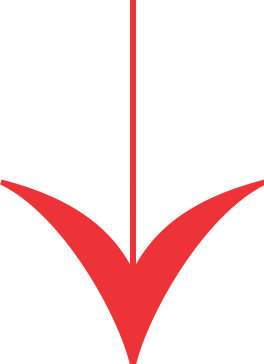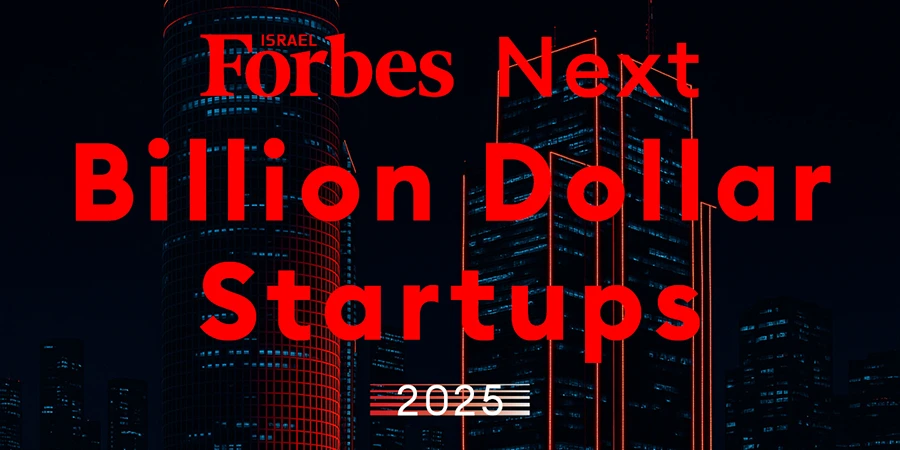$40 billion. This is the historic figure, exceptional by any global standard or comparison, that sums up the volume of merger and acquisition deals – the “exits” – recorded here during the first half of 2025 alone.
True, $32 billion of this amount comes from a single deal – the Google-Wiz transaction, the largest ever recorded in the history of local high-tech and the global technology giant – and it still needs final regulatory approval in the US and Europe. The same goes for the sale of Next Insurance to global insurance giant Munich Re for $2.6 billion.
Still, even without these two deals, we’re talking about more than $5 billion in acquisitions or IPOs of Israeli companies during a period of just six months, in the midst of war and a political crisis with countries around the world. It’s hard to think of a more resounding vote of confidence in the resilience and capability of the local technology sector. Even before that, 2024 was one of the best exit years in history: Israeli companies were sold or went public for a total of $17.2 billion, a jump of more than 60% compared to 2023.
Beyond Wiz and Next Insurance, among this year’s major acquisitions, we can also count the $2.5 billion that New Zealand’s Xero paid for Melio – the Israeli fintech company that developed a digital payment platform for small businesses and was selected for Forbes Israel’s promising unicorns list at the beginning of the decade. That same list, incidentally, also included another promising company – a cybersecurity startup for cloud infrastructure called Wiz.
American company Tenable stood out in the first half of 2025 with two acquisitions of Israeli companies totaling more than a quarter of a billion dollars. The American cybersecurity company, which specializes in information security and vulnerability management and trades on NASDAQ with a market cap of about $3 billion, is a direct competitor of Remedio – the cybersecurity startup founded by entrepreneur and former hacker Tal Kollender, which stars in this year’s Forbes Israel Next Billion Dollar Startups list.
The Israeli Paradox
And it’s not just about exits. Reports and data published over the past year, summarizing among other things fundraising, investment, and deal data in the local ecosystem, position the war year as a significant turning point – and in fact as one of the strongest years on record here.
During 2024, Israeli high-tech companies completed more than 450 funding rounds, totaling approximately $10 billion – a 15% increase in the number of deals and a 40% surge in their overall volume. In the first half of 2025, the momentum continued, with 200 deals recorded totaling more than $5 billion – the best half since 2022. Among the 10 largest fundraising deals of the year is that of Quantum Machines, the quantum computing startup selected for our promising startups list this year, which signed the largest funding deal ever recorded in the industry.
The Israeli paradox is particularly striking here: while the effects of the prolonged war are evident across economic sectors, high-tech continues to demonstrate exceptional resilience and cruises in a separate stratosphere. For comparison, in 2024, a full war year, gross domestic product barely grew by 1%. For the first time in decades, Israel’s economy grew at a slower rate than the OECD average. But in the technology sector, the picture is reversed – Israeli high-tech showed strong performance, and in many cases even historic.
All of this would not be possible in an isolated nation standing alone. Time and again, foreign and global players express confidence and lay the strongest and most important building blocks in the solid foundations of our remarkable technology ecosystem. Foreign venture capital funds, multinational companies, and R&D centers of global corporations create, in harmonious and synergistic combination with Israeli initiative and innovation, the remarkable technological cosmos called “Israeli high-tech.”
Blue and White Promise
In a year when Israeli high-tech faced unprecedented challenges, local innovation and entrepreneurship continued to flourish and prove their strength. Forbes Israel’s 2025 list of promising startups presents an exceptional group of young companies that are not only surviving the storm but also leading technological revolutions in the most diverse fields – from quantum computing and AI security, through cloud optimization and investment management, to military robotics and ethical generative artificial intelligence.
From Quantum Machines, which bridges quantum and classical computing and stands at the cutting edge of the field, to Xtend, which revolutionized the battlefield and saved many lives at the height of the war, through cybersecurity startup Noma Security, which secures the AI revolution in real-time, to Bria.ai, which developed “Spotify for AI” in the midst of the artificial intelligence revolution – each of these companies embodies Israeli innovation and initiative, bringing unique solutions to the evolving needs of the global market.

Together, the companies on the list have raised hundreds of millions of dollars, employ thousands of workers, and operate with top-tier customers worldwide – from the largest technology giants to government authorities and leading financial institutions. They operate in fields that will change the face of the world in the coming decade: quantum computing that will solve problems current computers cannot handle, cybersecurity that will enable safe adoption of AI technologies, platforms that will save organizations billions of dollars, and technologies that will save lives on the battlefield and in emergencies.
Beyond impressive business achievements, the startups on the list represent the core values of Israeli innovation: positive chutzpah to challenge conservative markets, the ability to identify gaps that others miss, persistence in developing complex technology, and determination to turn vision into thriving business. They prove that even in times of uncertainty, Israeli talent, entrepreneurial spirit, and the ability to innovate continue to place Israel at the center of the global innovation map – and along the way, build the next billion-dollar companies.
Methodology
To compile the Next Billion Dollar Startups list, we consulted with prominent investors and managers of Israel’s largest and most important venture capital funds, with proven activity and a clear track record as significant players in the field. They were asked to recommend companies with the highest chances of reaching a billion-dollar valuation – two from their own investment portfolio and two additional companies they are not involved with. More than 80 leading funds and investors in Israel and around the world participated in the Forbes Israel project.
The recommendations yielded more than 100 companies that stood out with a relatively high number of mentions. In the second stage, the Forbes team weighed additional data and expert recommendations, and from the candidates, a final list was selected of companies that, in our opinion, have the best chances of breaking the billion-dollar valuation barrier – and joining the most prestigious club in Israeli high-tech.
Forbes Israel’s Promising Startups for 2025


Agora
- Founders: Bar Mor (CEO), Lior Dolinsky (CPO), Noam Kahan (CTO)
- Funding: $63 million – $34 million in last round (Series B)
- Employees: Approximately 190 (140 in Israel)
- Founded: 2019
- Lead Investors: Qumra Capital, Insight Partners, Aleph


Bria.ai
- Founder: Dr. Yair Adato (CEO)
- Funding: $65 million – $40 million in last round (Series B)
- Employees: Approximately 50 (30 in Israel)
- Founded: 2020
- Lead Investors: Red Dot Capital, Entrée Capital, GFT Ventures, Intel Capital, Maor Investment, In-Venture


Buildots
- Founders: Roy Danon (CEO), Aviv Leibovici (VP Product and Customers), Yakir Sudry (CTO)
- Funding: $166 million – $45 million in last round (Series D)
- Employees: Over 200 (150 in Israel)
- Founded: 2018
- Lead Investors: Qumra Capital, Lightspeed, Intel Capital, OG Venture Partners, TLV Partners


Exodigo
- Founders: Jeremy Suard (CEO), Ido Gonen (CTO)
- Funding: $214 million – $96 million in last round (Series B)
- Employees: 200 (150 in Israel)
- Founded: 2021
- Lead Investors: Zeev Ventures, Greenfield Partners, 10D, Square Peg, JIBE, Vintage Investment Partners, and Leblon Capital


FundGuard
- Founders: Lior Yogev (CEO), Yaniv Zecharya (CTO), Uri Katz (VP R&D)
- Funding: $150 million – $100 million in last round (Series C)
- Employees: 170 (120 in Israel)
- Founded: 2018
- Lead Investors: Key1 Capital, Euclidean Capital, Hamilton Lane, Union Tech Ventures, Blumberg Capital, Team8, Citi, State Street


Noma Security
- Founders: Niv Brown (CEO), Alon Tron (CTO)
- Funding: $123 million – $100 million in last round (Series B)
- Employees: Approximately 50 (40 in Israel)
- Founded: 2023
- Lead Investors: Glilot Capital, Ballistic Ventures, Evolution Equity Partners, Databricks


PointFive
- Founders: Alon Arvatz (CEO), Gal Ben-David (CPO), Amir Hozez (CTO)
- Funding: $36 million – $20 million in last round (Series A)
- Employees: Approximately 75 (58 in Israel)
- Founded: 2023
- Lead Investors: Index Ventures, Salesforce Ventures, Entree Capital, Sheva VC, Vesey Ventures


Quantum Machines
- Founders: Dr. Itamar Sivan (CEO), Dr. Yonatan Cohen (CTO), Dr. Nissim Ofek (Chief Engineer)
- Funding: $280 million – $170 million in last round (Series C)
- Employees: Approximately 240 (120 in Israel)
- Founded: 2018
- Lead Investors: PSG Equity, Red Dot Capital Partners, Intel Capital, TLV Partners, Battery Ventures, Union Tech Ventures


Remedio
- Founders: Tal Kollender (CEO), Gilad Raz (VP Technology), Yaakov Kogan (VP Engineering)
- Funding: $65 million (Series A)
- Employees: Approximately 40
- Founded: 2019
- Lead Investors: Bessemer Venture Partners, TLV Partners, and Picture Capital


XTEND
- Founders: Aviv Shapira (CEO), Rubi Liani (CTO), Matteo Shapira (VP Customer Experience), Adir Tovi (VP Quality)
- Funding: $106 million – $35 million in last round (Series B)
- Employees: Approximately 150 (half in Israel)
- Founded: 2019
- Lead Investors: Aliya Capital Partners, TAU Ventures, Protego Ventures, Clal-tech, Chartered Group, Union Tech Ventures





